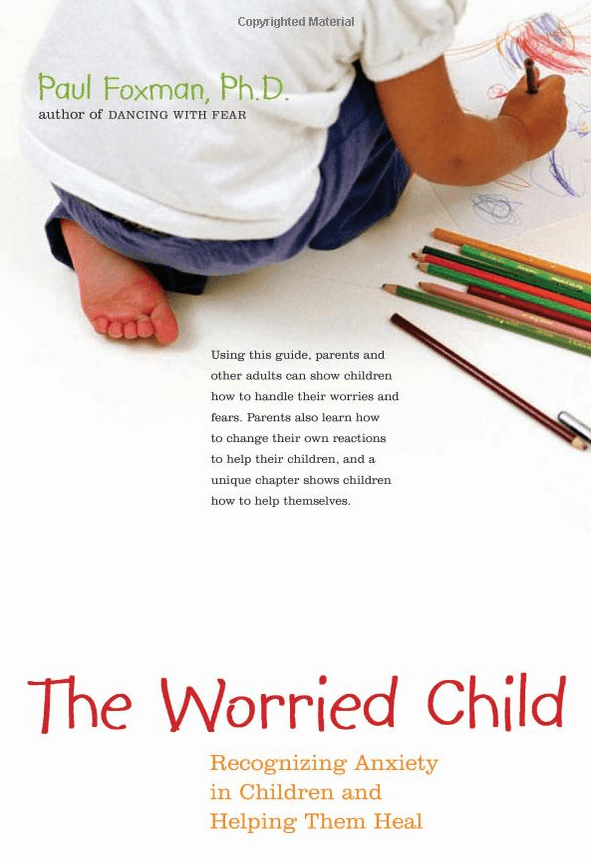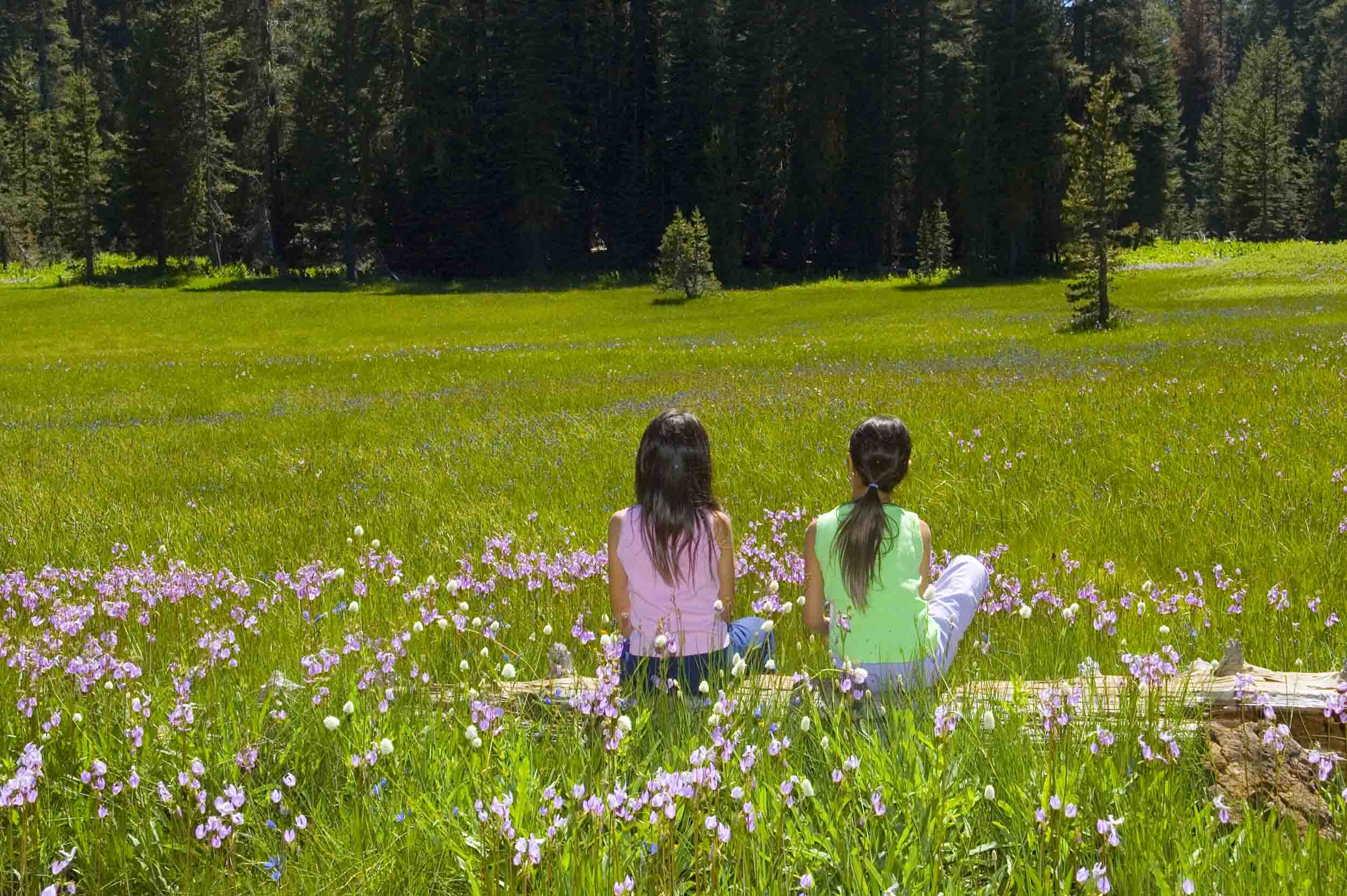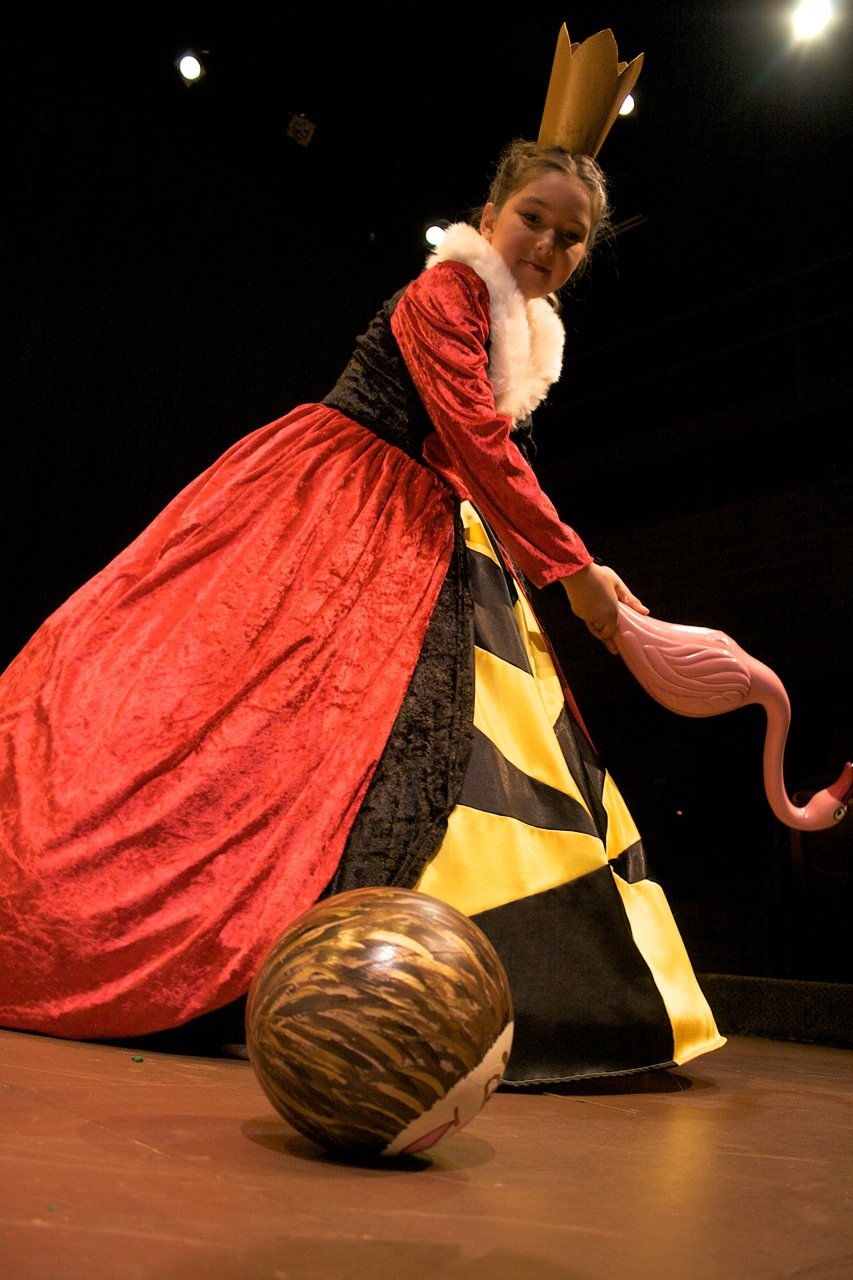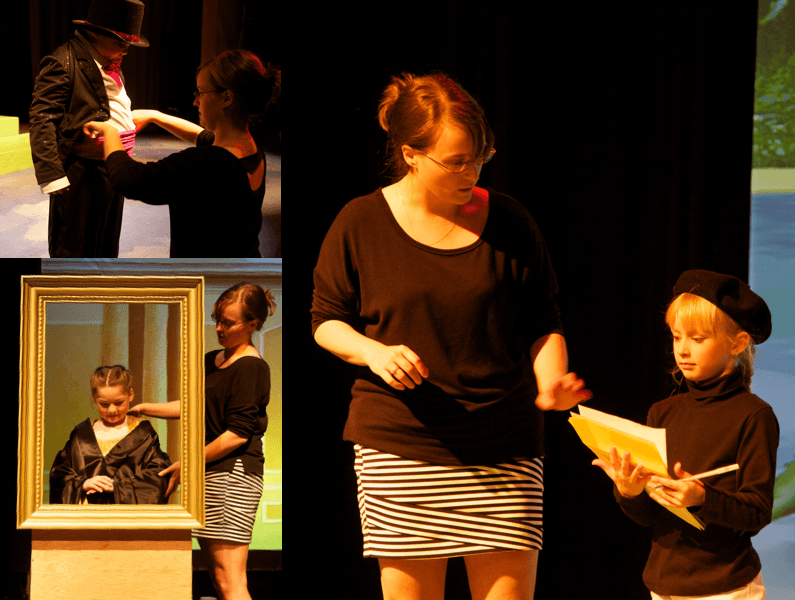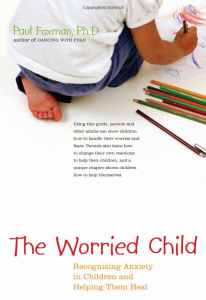 In my efforts to continue educating myself and those that I work with in all areas involving children’s education and development, I had the pleasure of coming across “The Worried Child” by Dr. Paul Foxman, a psychologist and Director for the Centre for Anxiety Disorders.
In my efforts to continue educating myself and those that I work with in all areas involving children’s education and development, I had the pleasure of coming across “The Worried Child” by Dr. Paul Foxman, a psychologist and Director for the Centre for Anxiety Disorders.
Dr. Foxman expertly discusses the many facets of anxiety. He explores what anxiety is, what it feels like; the importance of anxiety and it’s purpose, the types of anxiety and symptoms, the stages of anxiety growth and society’s role in that growth, school focused anxiety, the biology behind anxiety, and of course advice on seeking treatment. I feel one of the highlights of the book is the practical, short form, easily applied lists of solutions for parents and teachers working with a child with anxiety. Also included in the book is an entire chapter that can be read by children to assist them with their emotional management, empowering them and helping to build resilience in them.
Why is childhood anxiety particularly important to me? A couple of reasons.
Firstly, as someone who dealt with anxiety as a child and teenager I understand the confusion, despair, and hopelessness that can consume the child as well as the parents during this time. I appreciate the way it can turn a normally boisterous, outgoing child into a scared, worried, burdened individual who lacks the life experience or vocabulary to discuss the “nothing’s wrong, but everything’s wrong” feeling associated with anxiety. I hope that with this ever-increasing knowledge I can better adapt my role in my students’ lives to prevent or ease the experience of anxiety.
Secondly, anxiety is a common occurrence in arts programs. I have encountered it numerous times in my teaching career, for a couple of reasons that I can only guess at. Perhaps parents have tried having their child participate in other social activities, like sports, but because of the child’s predisposition towards the “anxiety personality” he or she has been unable to cope with the demands (whether real or imagined) of said activity. Arts programming has a reputation for working with the individual and facilitates personal growth while achieving social growth goals. The other possible explanation is that parents with children who appear shy or withdrawn to the extent that it is affecting their social experiences (in school or even at home) look to the performing arts as a way of developing confidence which will hopefully allow the child to overcome anxiety and it’s manifestations; and thereby allow them to lead a “normal” life.
It should be important for all art educators (educators of all types really but I speak here to the validity of arts programs) to understand anxiety and its relevancy in today’s society. This should demand the building of a curriculum that supports solutions and offers practical exercises for children to use as part of their emotional regulation tool kit. It is worth mentioning that, particularly in performance geared programs, creating great actors means helping students build their own emotional intelligence so that as they grow in their training they are better equipped to build stage worthy characters. Perhaps the best part of this practice is that while it builds this ability to perform, it also helps them master emotional stability and understanding which is such an important skill to have in every day life.
Lastly, and as discussed in “The Worried Child”, the world is becoming increasingly more anxious. We are in a greater state of panic then we ever have been before. The threat of violence, war, terrorism, bullying, bankruptcy, job loss, family breakdowns, political strife, government turmoil…the list goes on, is ever present in our lives. And with media access so easily available everywhere, we can be inundated with bad news 24 hours a day. Our own coping strategies aside, our children are present too, and they are feeling the effects of this world more so than ever. We are perpetuating anxiety in our culture, and while it would be impossible to obliterate anxiety, we may be able to equip our children with the necessary skills to combat it so that they may reach their highest potential, and foster in their own children the ability to do the same. It has to start somewhere, let’s start now.
Further reading on anxiety and emotional regulation can be found here:
- http://www.heysigmund.com/
anxiety-in-kids/ - http://ww2.kqed.org/mindshift/
2015/04/13/the-benefits-of- helping-preschoolers- understand-and-discuss-their- emotions/ - http://www.janetlansbury.com/
2012/12/no-angry-kids- fostering-emotional-literacy- in-our-children/

